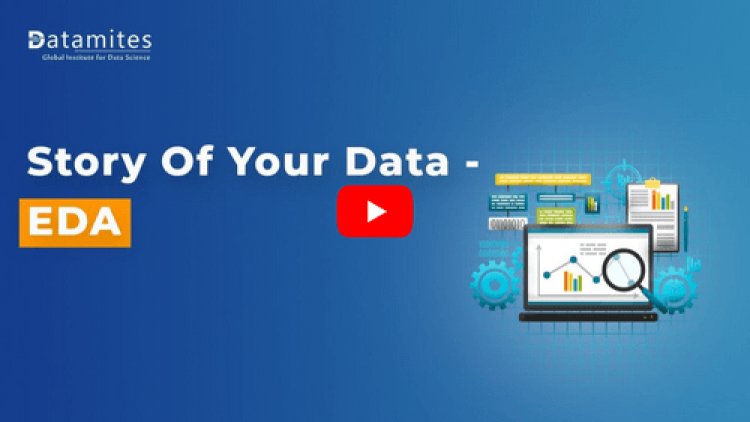How to Become a Data Analyst in Canada?

Embarking on a data analyst career in Canada can lead to an exciting and fulfilling professional journey. With organizations increasingly relying on data for informed decision-making, there is a high demand for skilled experts who can analyze and interpret large volumes of information. Data analysts play a crucial role in extracting valuable insights from data, enabling businesses to optimize operations, enhance strategies, and make data-driven choices.
To increase your chances of success in pursuing a data analyst career in Canada, there are specific steps you can take. This guide will explore the necessary prerequisites, skills, and educational pathways that can help you become a data analyst in Canada. It will also provide valuable insights into the job market and potential career prospects.
What is Data Analytics?
Data analytics is the process of examining and interpreting large and varied sets of data to uncover meaningful insights, patterns, and trends. It involves collecting, organizing, and analyzing data in order to gain valuable information that can be used to make informed decisions and improve business performance.
The market size of data analytics is expected to reach USD 303.4 Billion by the year 2030 at a CAGR rate of 27.60% according to a Market Research Future report. Data analytics encompasses a range of techniques and methods, including statistical analysis, data mining, predictive modeling, machine learning, and data visualization. It leverages tools and technologies to extract knowledge and insights from structured and unstructured data sources such as databases, spreadsheets, text documents, social media, sensor data, and more.
Why a Data Analytics career in Canada?
The U.S. Bureau of Labor Statistics predicts a rapid growth rate of 20% in data analyst jobs from 2018 to 2028, surpassing the average growth rate. A career in data analytics in Canada can be highly lucrative from a salary perspective. The demand for data analytics professionals has been rapidly increasing in recent years due to the growing reliance on data-driven decision-making in businesses across various industries. This increased demand has resulted in a shortage of skilled professionals, leading to competitive salaries and excellent career prospects.
The average salary for a data analyst in Canada ranges from CAD 65,216 according to a Glassdoor report. Entry-level data analysts can expect to earn an average salary ranging from CAD 55,000 to CAD 70,000 per year according to industry reports.
For senior-level roles or those with more extensive experience and leadership responsibilities, salaries can exceed CAD 120,000 per year or more.
Furthermore, certain cities in Canada, such as Toronto, Edmonton and Mississauga, have emerged as major tech and business hubs, attracting many organizations that heavily rely on data analytics. These cities offer a thriving job market and a higher demand for data analytics professionals, resulting in even more competitive salaries.
- The salary of a data analyst in Toronto ranges from CAD 64,887 per year according to a Glassdoor report.
- The salary of a data analyst in Edmonton ranges from CAD 63,974 per year according to an Indeed report.
- The salary of a data analyst in Mississauga ranges from CAD 77,764 per year according to an Indeed report.
Additionally, Canada offers a high standard of living, excellent work-life balance, and various opportunities for professional growth and development, making it an attractive destination for data analytics professionals seeking a rewarding career.
Refer the following articles:
- Data Analytics for the E-commerce Sector
- Data Analytics in Logistics
- Data Analytics in Retail Industries
Why is Data Analytics in demand in Canada?
Data analytics is in high demand in Canada across various industries due to the following reasons:
- Healthcare: The healthcare industry in Canada is experiencing a significant transformation with the adoption of electronic health records and digital healthcare systems. Data analytics plays a crucial role in analyzing patient data, identifying disease patterns, improving patient outcomes, and optimizing healthcare operations. It enables healthcare providers to make informed decisions, enhance patient care, and reduce costs.
- Retail: The retail industry in Canada has become increasingly competitive, and organizations are leveraging data analytics to gain insights into customer behaviour, preferences, and buying patterns. By analyzing customer data, retailers can personalize marketing campaigns, optimize inventory management, forecast demand, and improve overall customer experience. Data analytics helps retailers make data-driven decisions to increase sales, boost customer satisfaction, and stay ahead of the competition.
- Manufacturing: The manufacturing industry in Canada is embracing Industry 4.0 technologies, such as the Internet of Things (IoT) and automation, which generate vast amounts of data. Data analytics enables manufacturers to analyze sensor data, monitor equipment performance, predict maintenance needs, and optimize production processes. By harnessing data analytics, manufacturers can improve operational efficiency, reduce downtime, enhance product quality, and drive innovation.
- Education: Data analytics is gaining prominence in the education sector in Canada. Institutions are using data analytics to improve student outcomes, personalize learning experiences, and identify at-risk students who may need additional support. By analyzing student data, educational institutions can optimize curriculum design, track student progress, identify areas for improvement, and provide targeted interventions. Data analytics helps educators make data-driven decisions to enhance teaching methods, improve educational programs, and promote student success.
- Finance: The finance industry in Canada heavily relies on data analytics for risk assessment, fraud detection, customer segmentation, and investment strategies. With the increasing availability of financial data, organizations use data analytics to analyze market trends, assess creditworthiness, identify potential fraud patterns, and develop personalized financial products and services. Data analytics enables financial institutions to make informed decisions, minimize risks, improve operational efficiency, and provide tailored solutions to their customers.
In summary, data analytics is in high demand across various industries in Canada due to its ability to drive insights, improve decision-making, enhance operational efficiency, and gain a competitive edge. The application of data analytics in healthcare, retail, manufacturing, education, and finance industries allows organizations to leverage data to achieve their business objectives, improve customer experiences, and optimize processes.
Read the following articles:
- Become a Data Analyst in Malaysia
- Become a Data Analyst in Thailand
- Become a Data Analyst in United States
How to Become a Data Analyst in Canada?
To become a data analyst in Canada, you can follow these general steps:
Education and Skill Development
- Obtain a bachelor’s degree in a relevant field such as statistics, mathematics, computer science, economics, or data analytics. A master’s or higher degree may be necessary for some positions.
- Take courses or earn certifications in data analytics, statistics, programming languages (such as Python or R), SQL, data visualization, and machine learning. These skills are essential for a career in data analytics.
Gain Practical Experience
- Seek internships or co-op opportunities to gain hands-on experience in data analysis. This will provide you with real-world exposure and enhance your skills.
- Work on personal projects or participate in data analytics competitions to showcase your abilities and build a strong portfolio.
Develop Technical Skills
- Familiarize yourself with data analytics tools and software such as Excel, Tableau, Power BI, or statistical programming languages like Python or R. These tools are commonly used in the industry for data analysis and visualization.
- Learn SQL (Structured Query Language) for working with databases and manipulating data.
Networking and Professional Development
- To meet people in the industry, go to conferences, meetups, and industry events. Networking can help you learn about job opportunities and stay updated on industry trends.
- Join professional associations or data analytics communities to access resources, training, and networking opportunities.
- Continuously enhance your skills and stay updated with emerging technologies and techniques in data analytics through online courses, webinars, and self-study.
Job Search and Preparation
- Create a strong resume that highlights your relevant education, skills, projects, and work experience.
- Research companies that hire data analysts and explore job boards, company websites, and professional networks for job openings.
- Prepare for interviews by reviewing common data analyst interview questions, practising data analysis scenarios, and showcasing your problem-solving and communication skills.
Obtain Relevant Certifications
Consider earning certifications such as Certified Analytics Professional (CAP), Microsoft Certified: Data Analyst Associate, or Google Data Analytics Certificate. These certifications can demonstrate your expertise and enhance your job prospects.
Live Project Internship
- Live project internships offer data analytics students the opportunity to apply their theoretical knowledge in a real-world setting. By working on actual projects, they gain practical experience in collecting, analyzing, and interpreting data, using relevant tools and techniques.
- Live project internships provide a platform for data analytics students to develop and enhance their technical and analytical skills. They can work with real datasets, tackle complex problems, and gain proficiency in data manipulation, visualization, statistical analysis, and machine learning.
Resume preparation
- Emphasizing pertinent abilities and expertise.
- Incorporating proficiency in Python, R, SQL, Tableau, and Power BI for technical tasks.
- Highlighting background in data analysis, statistical modeling, and data visualization initiatives.
- Demonstrating a solid grasp of data querying, programming languages, and analytical aptitude.
Remember, the path to becoming a data analyst may vary, and continuous learning and self-improvement are crucial in this field. Stay curious, build a strong foundation of skills, and gain practical experience to succeed as a data analyst in Canada.
How is DataMites providing Certified Data Analyst Course in Canada?
DataMites is a reputable global training institute that delivers top-notch Data Analytics Training in Canada, featuring the finest Certified Data Analyst Course in Canada with a blend of flexible online learning alternatives. DataMites also offers the students with a wide range of courses like data science, artificial intelligence, deep learning, machine learning, Python, MLOps etc to avail in the domain.
Here’s how DataMites might provide a certified data analyst course in Canada:
- Ashok Veda as a lead trainer: Datamites is honoured to have Ashok Veda, an esteemed AI specialist, as part of its team. With an extensive 19-year background in analytics and data science spanning diverse sectors such as finance, healthcare, and technology, he has consistently achieved outstanding outcomes and fostered innovation. As a highly regarded faculty member at Datamites, Ashok Veda spearheads projects that leverage advanced Artificial Intelligence methods to unveil valuable insights and address intricate business challenges.
- Flexible Schedule: DataMites provides flexible training options to students, including Online Data Analytics Training in Canada. This allows students to choose the learning approach that aligns with their individual needs and preferences.
- Project and Internship opportunities: Datamites offers students invaluable project and internship prospects that empower them to gain hands-on experience and apply their skills in real-world scenarios. These practical encounters are instrumental in enhancing their comprehension of data analytics as they engage in industry-specific challenges and work on tangible projects.
- Industry-relevant Tools: Datamites provides industry-relevant tools to its students through various means. This includes offering access to licensed software and tools used widely in the industry, such as Excel, SQL, Tableau, Power BI, and more. Additionally, Datamites incorporates hands-on practical exercises and real-world projects where students can apply these tools to gain practical experience and proficiency. By providing a combination of access to tools and practical applications, Datamites ensures that students are well-equipped with the necessary industry-related tools and skills.
- Course Curriculum: DataMites would create a thorough curriculum that goes through the key ideas and methods pertinent to data analysis. The curriculum may include topics such as data exploration and visualization, statistical analysis, predictive modeling, data mining, machine learning, and data storytelling.
- Hands-on Projects: To ensure practical understanding and application of concepts, DataMites might provide hands-on projects or case studies that allow participants to work with real-world datasets and solve data analysis problems. This practical experience helps reinforce the learning and develop practical skills.
- Certification: Upon successful completion of the course, DataMites would likely award participants with an internationally recognised IABAC certification. After receiving the Data Analytics certification in Canada the candidates can validate their knowledge and skills as a data analyst.
- Affordable fees: The Certified Data Analyst Training Course Fee in Canada ranges between CAD 1,109 to CAD 2,110 offering students a range of affordable options.
It’s recommended to visit the DataMites website or contact their representatives directly to obtain accurate and up-to-date information about their specific offerings in Canada, including course details, schedules, fees, and any additional support they provide.
Certified Data Analyst Course

Summary
To embark on a successful career as a data analyst in Canada, it is advisable to pursue a relevant bachelor’s degree in fields such as statistics, mathematics, computer science, economics, or data analytics. Additionally, acquiring certifications, developing technical skills in data analytics tools, programming languages, SQL, and data visualization, and enrolling in a reputable Certified Data Analyst training institute in Canada are crucial steps.
Gaining practical experience through internships, personal projects, participating in data analytics competitions, and completing a Data Analytics Training Course in Canada helps demonstrate your abilities and build a strong portfolio. Networking with professionals in the field and joining data analytics communities can provide valuable insights and job opportunities.
The path to becoming a data analyst may vary, and perseverance, curiosity, and a passion for data analysis are key. With the growing demand for data analytics professionals in Canada, investing in your education and skill development can open doors to a rewarding career in this exciting field.
Read the following articles:
- Become a Data Analyst in India
- Become a Data Analyst in South Africa
- Become a Data Analyst in Singapore
Data Analyst vs Data Engineer

What is Exploratory Data Analysis


 Datamites Team
Datamites Team 



